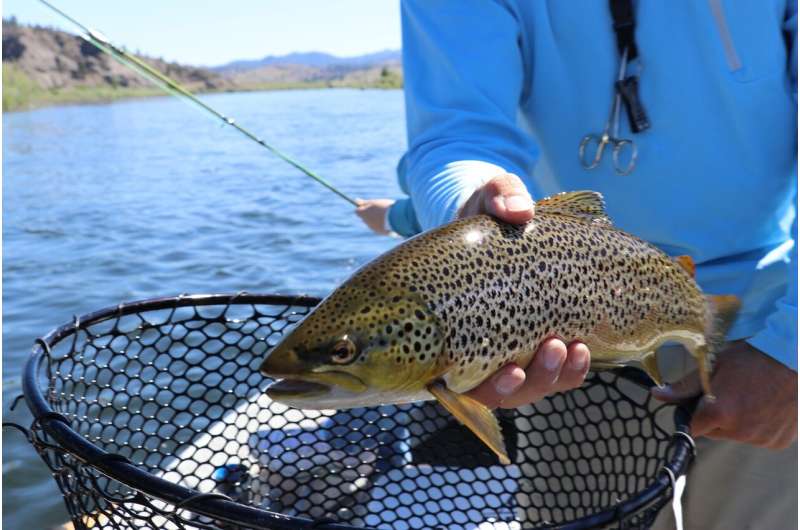September 25, 2019 report
Cryopreservation of sperm found to slow offspring growth in fish

A trio of researchers with the University of Lausanne has found that cryopreservation of fish sperm leads to slowed growth of their offspring. In their paper published in Proceedings of the Royal Society B, David Nusbaumer, Lucas Marques da Cunha and Claus Wedekind describe their study of brown trout cryopreservation fertilization and what they learned from it.
Medical science discovered many years ago that if done right, human sperm can be frozen and then thawed for use at a later date—a means of delaying procreation or giving those unable to conceive a way to do so. The technique, called cryopreservation has been used for over half a century and, to date, no ill effects have been observed. But some have suggested it is possible that some effects have taken place, but they have not been noted because paternal effects become more important only as people grow older. Others have noted that it is difficult to test for genetic problems in mammals in general because they produce so few offspring. In this new effort, the researchers sought to overcome such testing problems by using trout instead of humans.
The work involved collecting 960 trout embryos from 10 female fish. Half of the eggs were fertilized with fresh sperm, the other from frozen samples. The team let the fertilized eggs grow until a backbone appeared. They report that they found no difference in the rate of fertilization, or in survival rates of the offspring. Nor did they find any defects in larvae. They did, however, find that those embryos fertilized with frozen sperm grew on average 4.2 percent more slowly than those that had been fertilized naturally. They also found that the frozen sperm swam slower and exhibited less movement than sperm that had not been frozen. The researchers acknowledge that they do not know why the offspring matured more slowly, or if doing so might have had any other effects on the fish that would eventually have been born had then been left to grow to maturity. They also acknowledge that they do not know if their findings have any relevance to human cryopreservation efforts.
More information: David Nusbaumer et al. Sperm cryopreservation reduces offspring growth, Proceedings of the Royal Society B: Biological Sciences (2019). DOI: 10.1098/rspb.2019.1644
Journal information: Proceedings of the Royal Society B
© 2019 Science X Network





















